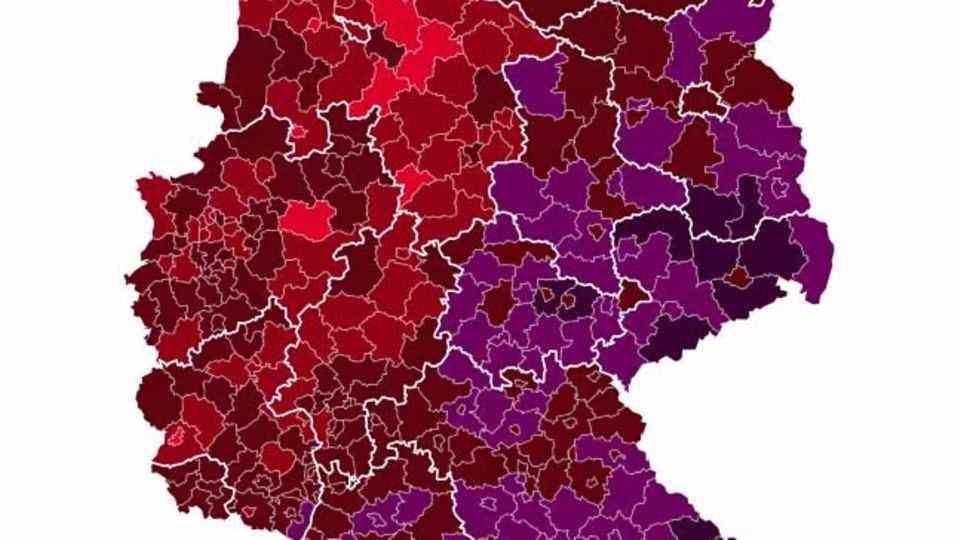Pitfalls of the rapid tests
They did everything right – got vaccinated, got tested. Nevertheless, the party developed into a superspreader event
Rapid tests help detect corona infections. But they are not 100 percent reliable.
© Sebastian Gollnow / DPA
A man reported on Twitter about a birthday party that turned into a super spreader event despite negative tests and vaccinations. Virologist Drosten uses the example to again point out a known weakness of the rapid tests.
The Berlin virologist Christian Drosten took a Twitter thread as an opportunity to again draw attention to a weakness of so-called antigen rapid tests. “Before the onset of symptoms, rapid tests are simply not sensitive enough. Hence my doubts about 3G,” wrote Drosten on the weekend on the short message service. In the case of vaccinated people, the sensitivity of the tests appears to be “even worse”, but the data on this are still preliminary.
In the specific case, a Twitter user * reports numerous corona infections at a birthday party he was present at. All 20 guests were therefore fully vaccinated and tested for the virus with rapid tests before the celebration – with a negative result. Nevertheless, ten people tested positive for the virus in the days after the celebration. The symptoms of the positives are diverse, it says in the thread. “From high fever (1x) to loss of taste and smell (2x) to mild cold symptoms or none at all, everything is represented.” The second vaccination was therefore about six months ago for all those present.
The virus is also sitting in the room with G control and supposedly negative rapid tests and is celebrating its party, according to the user’s conclusion. “Avoiding contact” and “booster vaccination” are therefore the measures of the hour. It is good, however, that all people have been vaccinated. The courses are “mild”.
Drosten commented on the thread with the words “This is how it looks” and wrote: “So close vaccination gaps, boost and reduce contacts until then.”
Since last week, the Standing Vaccination Commission (Stiko) has been recommending the booster for all adults aged 18 and over – “usually six months after the last vaccine dose”. The background to this is that the immune protection against infection wanes over time. Risk groups, including the elderly, should be prioritized for booster vaccinations.
Rapid tests do not provide complete security
It has long been known that rapid tests do not always reliably detect infections before symptoms begin. As early as April 2021, Drosten pointed out that the tests could have problems detecting an infection, especially in the early phase. This means: Although the test (still) shows a negative result, the person concerned can already be contagious.

Also the “Cochrane Collaboration“- an independent network of scientists and doctors – drew attention to the fact that rapid antigen tests in people with symptoms are better suited to correctly identify cases of Covid-19 than in people without symptoms. According to this, rapid tests detect an average of only 58 percent of the asymptomatic infected.
In view of the high number of cases, the demand for rapid tests has recently increased again. However, experts keep reminding you that the feeling of security after a negative rapid test can be deceptive. So-called PCR tests are the gold standard: They detect even the smallest amounts of virus, but are more complex than rapid tests.
* Name is known to the editors

